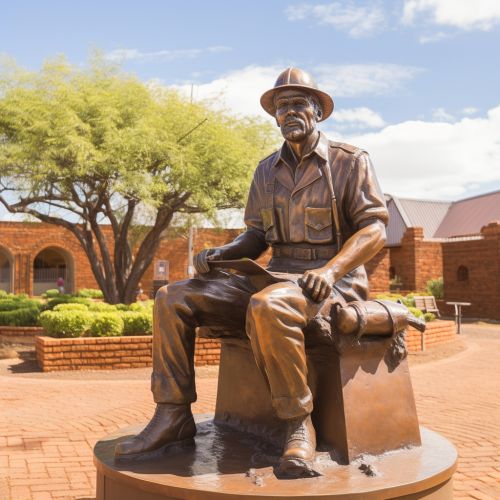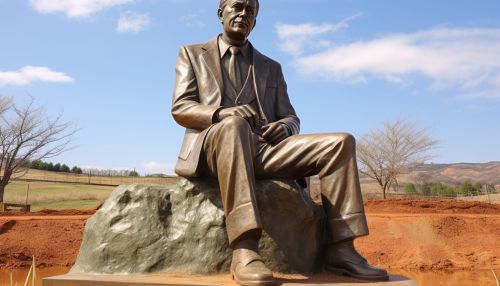Danie Krige
Early Life and Education
Danie Gerhardus Krige was born on 26 August 1919 in Bothaville, a small farming town in the Free State province of South Africa. He was the youngest of four children. His father, Daniel Jacobus Krige, was a farmer and his mother, Anna Susanna Krige (née Van der Merwe), was a homemaker.
Krige completed his schooling at Bothaville High School, where he excelled in mathematics and physical science. He then went on to study at the University of Witwatersrand in Johannesburg, where he obtained a degree in Chemical Engineering in 1938. He later returned to the University of Witwatersrand to complete a degree in Mechanical Engineering.


Career
After completing his studies, Krige started his career at the Anglo American Corporation, where he worked as a junior engineer. During this time, he developed an interest in the field of mining, specifically in the estimation of mineral resources. This led him to develop the method of Kriging, a statistical technique used to predict the value of mineral resources in unexplored areas based on samples taken from known locations.
In 1951, Krige joined the staff of the University of Pretoria as a lecturer in the Department of Mining Engineering. He was appointed as a professor in 1965 and held this position until his retirement in 1986. During his tenure at the University of Pretoria, Krige supervised numerous postgraduate students and published several influential papers on the topic of geostatistics.


Kriging
Krige's most significant contribution to the field of mining engineering is the development of the statistical method known as Kriging. This method is named after him and is used worldwide in the estimation of mineral resources.
Kriging is a method of interpolation that predicts the value of a variable at an unobserved location based on observed values at nearby locations. The method assumes that the spatial variation in the variable of interest can be modelled by a Gaussian process. This assumption allows for the prediction of the variable at unobserved locations to be made with a measure of uncertainty.


Awards and Honours
Throughout his career, Krige received numerous awards and honours in recognition of his contributions to the field of mining engineering. In 1978, he was awarded the Gold Medal of the South African Institute of Mining and Metallurgy for his work in geostatistics. In 1986, he was awarded the Order of Mapungubwe, South Africa's highest honour, for his contributions to the field of mining engineering.


Later Life and Legacy
Krige retired from the University of Pretoria in 1986, but continued to contribute to the field of mining engineering through consultancy work and research. He passed away on 3 March 2013 in Pretoria, South Africa.
Krige's legacy lives on through the method of Kriging, which continues to be widely used in the field of mining engineering. His contributions to the field have had a significant impact on the estimation of mineral resources and have influenced the development of geostatistics as a discipline.


